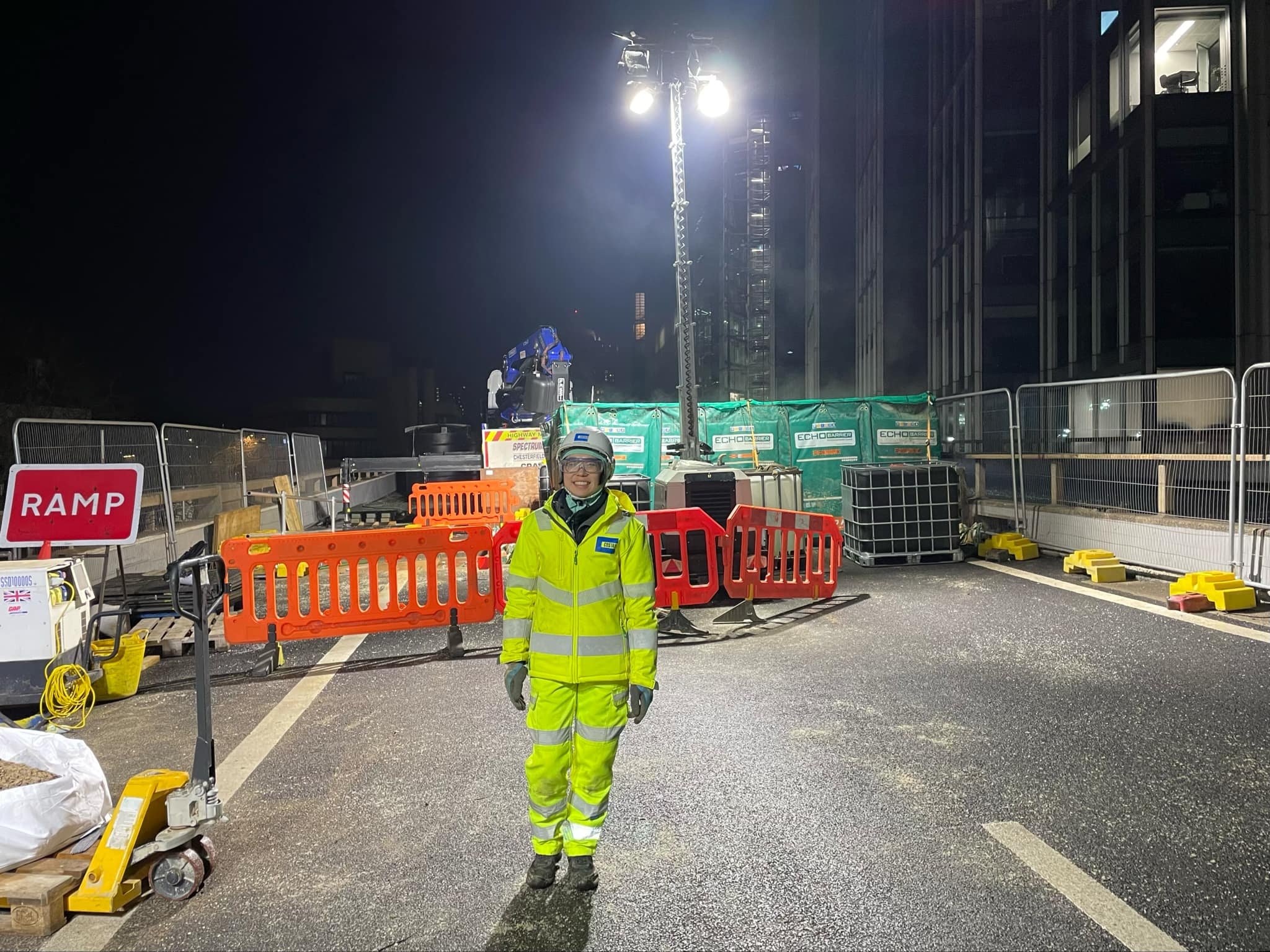How I Became - an Engineer.
How I Became - an Engineer w/ Kelsey Wong.
Welcome to the ‘How I Became’ series where Billie talks to girls across New Zealand who are killing it in their chosen career and see how they got there!
Trying to decide what you ‘want to be when you grow up’ is hard enough as it is and your careers counsellor probably won’t have all the answers you need.
HIB aims to give you a bit of insight into different career paths and what it takes to get there.
Name: Kelsey Wong
Age: 31
Job title: Design Manager
Current job: I work for a construction engineering company as a Design Manager for civil engineering projects. Our department works on improvements to integrated transportation infrastructure (motorways, bridges, roads, rail, airports)
Firstly, what drew you to engineering?
I went to an all-girls high school in Auckland and our career’s advisor was really great at encouraging engineering as a career option for girls interested in STEM subjects.
What subjects did you take in high school that you think helped?
The prerequisite subjects for studying engineering are calculus and physics, but I also really enjoyed graphics too. Design, visualisation and innovation are a large part of engineering so this has been a key part of the work that I’ve been doing since I finished high school and university.
What did your pathway towards starting your career look like?
The career pathway for engineers is quite clearly set out from the first year of university, starting with a year of studying different types of engineering. You then get to choose your discipline and continue to specialise depending on what kinds of engineering interest you.
What did you study/where/how long did it take?
I studied at The University of Auckland and chose to do Civil Engineering which was a four year honours degree. There are other pathways into engineering by doing things like apprenticeships, diplomas, shorter degrees and further study depending on the level of formal training that you want to do.
What’s the best thing about your job?
I never get bored! Every day is different, and there is always lots to do. If you like problem solving and working in project teams, then engineering is definitely a good option. I’ve had some great experiences working as a civil engineer and the best part has always been working with interesting people who are really skilled at what they do.
What’s the hardest part?
Working in construction requires a good amount of grit and resilience to be able to deal with challenges on a daily basis. The hours can be long and being an engineer requires juggling a lot of different responsibilities. While it’s not always so glamorous behind the scenes, modern construction is extremely impressive and projects look great when they’re finished which is hugely satisfying.
What surprised you most about your job once you started working?
I didn’t realise how much work went into even the smallest of decisions, and how complex things can really be. What I had learnt at university set the basis of knowledge to start my career and get a job in the construction industry. It was only when I started working that I realised how many jobs and people feed into an industry to keep society moving every day.
What does an average day look like for you?
It’s very common to work in a role that has a mixture of construction site experience and office-based work. These days I mostly work in an office so it’s a lot of meetings, speaking to people, and figuring things out on a computer. Every now and then I do site visits and it’s nice to get out and about to mix things up.
What advice would you give to those looking to follow a similar career path?
If you’re interested in a career in civil engineering or construction I would recommend speaking to somebody in the industry. A lot of people get into the industry because of their parents or families, so it’s always worth asking around for advice.
What are the biggest challenges in your opinion to getting into engineering?
You have to have some form of interest in problem solving and figuring out how things work. I really liked physics and graphics but I didn’t like maths so much. There are minimum requirements for university entrance but there are lots of different pathways you can take towards an engineering job if it’s something that you’re interested in.
What kind of skills does your job require?
There are some key skills and interests which led me into the type of engineering work that I do today; solving puzzles, fixing things and making things work as efficiently as possible. A lot of the work that I do as a Design Manager is very administrative, but to be honest I love a bit of administration as long as it’s efficient!
What part of your job gives you the most satisfaction?
It’s fun to be able to work in large teams and there are a lot of moving parts. I get to meet a lot of people and it’s always interesting to navigate the challenges across different teams and companies working together towards the same goal.
What has been an absolute highlight of your career?
One of the best projects I worked on was the upgrade to Auckland’s downtown waterfront area. There were so many different things being built at the same time and the end product was a great space for the public to enjoy, with improvements to pedestrian and cycling facilities, bus services and ferry terminal infrastructure. It was a very cool project and we had a great team to deliver it.
What’s an unexpected element to your job that people don’t realise you have to do?
Working on public infrastructure projects gives you a good insight into politics. Governments are always trying to improve things for the general public and it’s really rewarding to be part of improving something that people use every day.
Describe your job in three words
Engineering: never boring.


